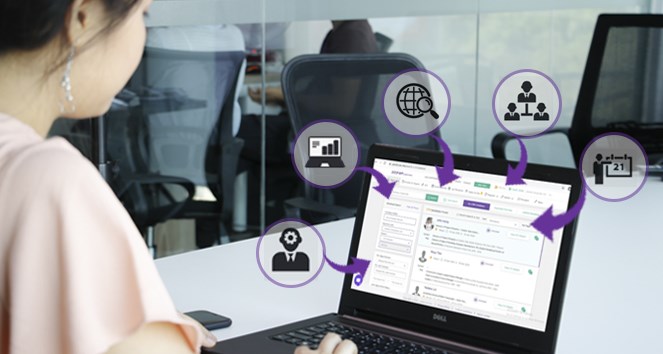We often hear the phrase “digital transformation”, so much so that people may get tired of hearing the phrase over and over. Some may think the need for a digital transformation is not quite relevant to them, or will not have a major impact on their daily routine; others feel they are not ready for it. But now more than ever, with how COVID-19 has affected many parts of every business, the need for a more digitally-focused lifestyle and economy - i.e. a “digital transformation”- has become very evident. According to Oxford Business Group, COVID – 19 has significantly shaken up the development of the digital economy in Myanmar, leading to a rise in demand for home broadband in a traditionally mobile-first market.
As the trend in digital technology continues to evolve at a head-spinning speed, disrupting complete industries and changing the way people live and work dramatically, it has forced enterprises to rapidly adapt, particularly those willing to be at the forefront of innovation. Many businesses have begun reconfiguring the nature of work through the collaboration of man and machine, and evolving talent expectations /aspirations with each generation.
As speed, agility and innovation have become a norm in a digital world, the role of HR is critical in the co-creation and delivery of business outcomes. Here are five ways HR Teams can keep up with the rapid transformation of businesses in the new digital age.
1. Adjust and cultivate the organization’s culture to be in line with a digital economy
Culture can fasten an organization’s vision and mission bringing together the aspirations of the workforce with those of the business, strengthening engagement and lowering turnover rates. A strong culture makes an organization an attractive employer to the best talent.
2. Prepare the workforce for the future through capability
Businesses should take a mid to long-term view of their talent pipeline, by curating an inclusive workforce with talent that meets their needs, orchestrating the workforce experience to invigorate teaming and productivity, as well as forecasting future capabilities and enabling continuous learning.

3. Deliver on experience and aspirations
In these days, the role of HR has unquestionably extended to marketing and branding. Current and potential employees should be regarded as customers of organizations. As a result, winning their hearts and minds with relevant and consistent brand promises across all employee touch points becomes crucial. This brand promise includes a higher purpose, meaningful work, the opportunity for achievement of personal aspirations and an appealing organizational culture.
4. Be a high performance organization and leverage on technology tools
High performance organizations design their physical or virtual environments to make their employees as effective as possible in supporting business goals and providing value. They have clear accountability, good communication and understanding with their employees, which help them reward and recognize their prime talent and provide challenging growth opportunities that meet the future needs of the organization.
5. Encourage change
HR in Myanmar will increasingly play a role of driver as well as facilitator when empowering organizations towards the future. Along the journey to achieve successful outcomes, it needs deliberate collaboration, shifting mindsets, storytelling and the overall cooperation of leaders, people managers and employees.
Successful Myanmar organizations will require fresh thinking, adaptability, and a thirst for adventure – because in the future of HR, it can’t be granted that traditional transformation approaches can longer apply.
If you’re looking for new ways to take your HR game to the next level, have a look at how the Myanmar Employer Awards can be the perfect platform for you to display and enhance your employer brand: www.myanmaremployerawards.com.